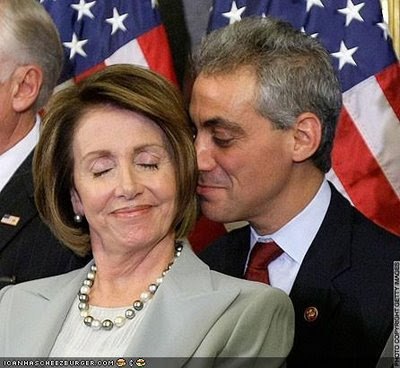Chicago's Bid To Fleece Motorists Of $90M Falls Short

Don’t you just hate it when you plan to screw your constituents out of nearly a hundred million bucks and you only get, like, half of that?
A combination of salesmanship and greed led the city of Chicago to blanket the city with speed and red-light cameras. They were expected to issue over one million tickets a year. Estimates of Chicago’s population range between 2.6 and 9.5 million people, depending on how one defines “Chicago”.
Unfortunately for Chicago’s embattled mayor, Rahm Emanuel, the motorist sheep couldn’t be sheared at quite the expected rates. The shortfall between expected revenue and actual revenue could be as much as fifty million dollars, putting pressure on the city to make the money up in other ways.
Still, one has to wonder: If a law is broken at least four hundred thousand times a year in a city area of under ten million people, how valid is the law? And if a city is betting on a million lawbreakers a year to balance its budget, where is the incentive to look at ways to keep people from breaking the law, whether through adjusting the law or adjusting the roads? Finally, if Mayor Emanuel really wants a million people a year to go speeding through school zones, what does that say about his sense of ethics?

More by Jack Baruth


































Comments
Join the conversation
Everybody can help to reduce career politician damage by not voting for incumbents. You can take action to improve the future.
We can bicker back and forth all day about yellow light times and who collects the fees and who is responsible and so on and so forth, but the overriding issue is that it is wrong, and should be illegal, for governments to monetize lawbreaking by their citizenry that creates incentives for them to "entice" citizens to break laws so that they may charge them for it. We see it with speed limits all the time; statistically the speed limits we have are mostly BS, most can be and should be raised, as has been proven by study after study. But they aren't, because municipalities (and insurance companies) have a vested interest in keeping them artificially low to entice citizens to break them, so that police can line the public coffers with the resulting fines. Ignore all else, and that's the real problem.
i find the picture used for this article offensive. It looks as if he is back dooming her in the shower.
I don't know why there has to be a private intermediary for this equipment. It must have gone off patent years ago. Pedestrian fatalities are rising sharply. I think partly because there's no way to automate the kind of enforcement that makes that safer.